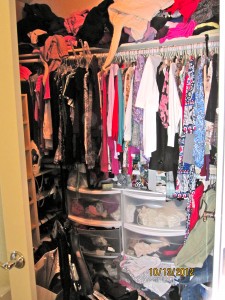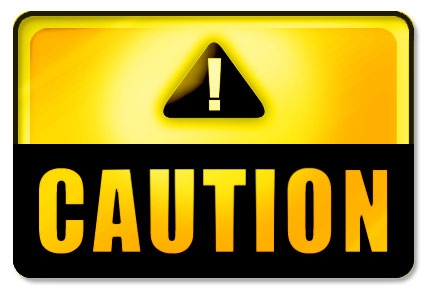It’s a new year. A fresh start. “This is the year I will finally get organized!” You promised yourself you’d do it last year (and the year before).
Alas, it all feels too overwhelming. You don’t know where to start. You don’t have a plan in place. Deep down you know you can’t do it alone.
As a veteran professional organizer, move manager, personal coach and owner of LET’S MAKE ROOM, I know what keeps my clients “stuck” in their clutter.
5 Tips To Finding Your Real Goal
TIP#1 – Stop setting “get organized” as your goal
That’s like saying, I want to exercise more. Really? What is it that you want from exercise?
To feel better, be more active, get your blood sugar under control? Or perhaps its train for a fitness event like a marathon?
Exercise, like organizing, is part of the process that gets you to your goals but it isn’t the goal itself.
TIP#2 – Set a goal that answers the question, “If everything is organized just the way I want, what would I be able to do that I can’t do now?
Imagine yourself sitting in the area you want organized. It could be your bedroom, your closet, your dining room, your office, or even your garage. What is it that you’d be able to do there that you can’t do now?
Sleep better? Get dressed quickly? Find what you need? Sit, eat, and perhaps even entertain at your dining room table? Pay your taxes on time? Easily pack for your family camping trip and know where to return everything when you return?
In other words, what does “get organized” get you? Make that your goal!
TIP#3 – Think about how you’ll feel when you accomplish what you really want.
You will feel more relaxed, less stressed, and energized. You will have more fun, enjoy your life, fight less with your spouse or kids, and spend more quality time with them or alone.
Imagine feeling calm when your home is tidy. A tidy home not only creates the physical space to help you find what you need. It also creates the room in your brain to think more clearly and be more mindful.
TIP#4 – Combine your answers to TIP #3 and TIP #4 into a new goal. Here are some examples:
- I want better quality sleep so I can feel more relaxed and less stressed.
- Find my clothes quickly and easily so I can feel less rushed in the morning
- Invite friends over to dinner so I can try out a new recipe, have fun with people I care about feel less isolated.
- Go on a camping trip with my family or friends and know I have everything I need ahead of time.
- Feel good giving away the things in my life that no longer serve me and make room for the things I truly love.
Notice, the word organize does not appear in either of these goals. It may be part of the process to get what you want. Or it may not.
Start with the real goal. Then determine if organizing is part of the process. Is getting decluttered what’s needed? If so, how are you going to do it?
TIP#5 – Understand your talents and challenges and get help if you need it.
Not everyone has the brain neurons, skills, or training needed to organize their lives.
If you’ve tried getting organized year after year, there’s a good reason why you’re not succeeding. And it’s not because you’re lazy, stupid, or crazy!
When it’s time for help
Chronically disorganized people have underlying physical or emotional conditions. These can interfere with the ability to obtain or practice organizing skills.
Consider getting help. Too overwhelmed to do it yourself? Hire a Professional Organizer. Join a support group or a peer group facilitated by a professional organizer. My colleague Sherri Curley from The Practical Sort offers small virtual groups. Check her out!
If clutter is creating emotional stress or a safety hazard for you or a family member, consider professional help from a therapist or mental health agency offering services for those with hoarding disorders.
Consider hiring an organizing coach who specializes in working with those with ADHD.
Chronic disorganization has many causes. Examples include ADHD, unresolved grief, childhood trauma, depression, and anxiety. Growing up with others who were either exceedingly sloppy or tidy can also contribute to chronic disorganization.
Intellect and talent have nothing to do with being organized or disorganized
Some of the most brilliant people alive, and in history, such as artists, presidents, CEOs, musicians, and royalty are chronically disorganized.
Get started!
But let’s say your clutter is just a function of living in your home for 10, 20, or more years. Or you don’t have a lot of clutter, just some trouble spots you’d like to work on but you haven’t had the time to tackle it.
The same 5 tips apply. – Know what your end goal is first. To help, I’ve included a fill-in-the-blank sentence you can use to state your goal.
“I want my _________________________ (Living area, Storage area, Work area. Be specific) more organized so I will be able to _______________________. This is important to me because I will feel ________________________.
Here are a couple of examples:
I want my whole home decluttered so I will be able to hire movers to pack and move me to my new home. This will enable me to sell my old home and know that I won’t experience the stress of moving that I’ve had many times before.
I want to organize and declutter our rarely used spare room into a home craft area so I can have space to work on the projects that I enjoy without cluttering up our dining room table anymore. This is important to me because I know I won’t have to rush to clear the dining table every time I want to eat or entertain. That will make me feel calmer and more excited about the prospect of having people over.
Happy New Year!



